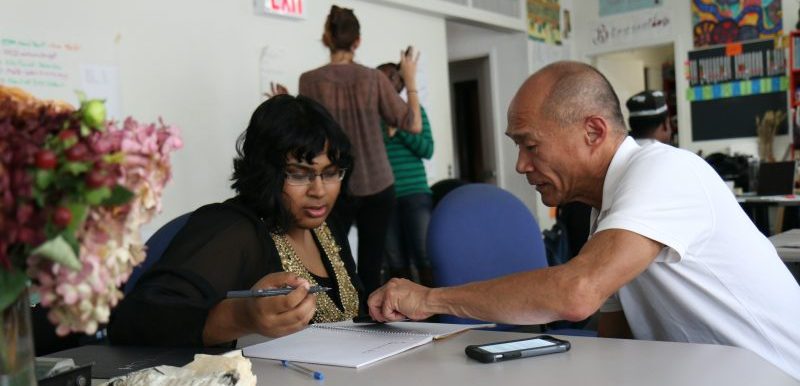Recently, a formal mentorship program was established at my agency for mid and executive-level managers. The objectives are to support leadership development, build internal networks, and enhance cross-divisional communication. 
If I am being completely honest, when I found out who my mentee was going to be, I felt anxious and intimidated because the person I am paired with is a subject-matter expert in her division. She knows her job like the back of her hand. At first, I felt lucky about how much I would benefit from the pairing, but then I deeply worried about how much value I would be able to provide to her in return.
Instead of letting that worry cripple me into inaction, I started researching the value of mentorship programs and how they work. The consistent theme in everything I read is that the best ones are truly a two-way street. That means that both parties have mutual respect and are open to learning new things; each person is both a learner and a teacher.
Much to my relief, in my mentorship pairing, we have taken on a two-way relationship that is proving to be highly beneficial to us both. In our last meeting, we covered a lot of work-related ground and then we laughed until our sides hurt about non-work-related topics. I couldn’t have envisioned anything better than how things are turning out.
In any industry, having a mentor can be just the boost needed for enriching career development. Mentors often not only share real-life lessons and professional skills needed for advancement, but they can also offer breakthroughs to networks and connections that can make success possible. Having a mentor, particularly one who has likely faced down challenges that you might be presented with related to race or gender, can be an enormous advantage. Simply put, having an ally that connects with you on a deeper level will make your career quest that much easier to navigate.
Finding a Mentor
If your organization does not offer mentorship as part of their professional development programming, you can easily find one on your own in five easy steps:
- Decide what skills you want to develop. Take a moment and be completely honest with yourself and make a list.
- Identify someone who you admire and respect. This should not just be someone who has the job you want. It should be someone who has personal values that you share and positive characteristics that you want to emulate.
- Find out more about the person. This is important because you might end up realizing that they are nothing like the persona they project and aren’t a good match for you after all.
- Don’t ask the person to be your mentor right away. Start by asking them to have an informal chat first. When you meet, let that conversation flow naturally and see if your personalities are a match.
- Follow up and make the ask. Be sincere, thank the prospective mentor for their time, and tell them that you are inspired by them and that you would be honored if they would consider being your mentor.
Being a Mentor
Being a mentor is a lot like being a trusted adviser. To do it well you have to commit and follow through on being available to support your mentee when they need it. You will also have to resist the urge to talk more than you listen. Most importantly, you should always have on your radar how your mentee’s work contributions fit into long-term career goals they have, as well as the bigger picture of the organization’s priorities.
Here’s how you can be an incredible mentor.
- Take a genuine interest in your mentee. Pay attention to what they are saying and don’t worry about doling out advice immediately. Ask open questions and be a sounding board.
- Be emotionally intelligent. In no time you are going to start getting to know your mentee’s unique personality and about the experiences that have shaped them. Be open-minded and embrace your differences as an opportunity to learn.
- Be a positive role model. A mentee will learn a lot from you by observing how you behave. They are very likely to follow your lead and adapt your approach to their style and even build confidence through their affiliation with you.
I’ll leave you with these parting words from Joshua L. Seedman, “Be mentored because teaching and learning are not the opposite of each other but rather are completely intertwined.”
Interested in becoming a Featured Contributor? Email topics you’re interested in covering for GovLoop to featuredcontributors@govloop.com. And to read more from our Winter 2021 Cohort, here is a full list of every Featured Contributor during this cohort.
Kelly Brown is the Special Assistant to the Director of a public safety agency in Washington, D.C. In her 22 years in government, she has served in senior advisory roles within the executive offices of mayors and city administrators. Her career achievements include drafting the District of Columbia government’s first set of published customer service standards and conceptualizing engagement and culture pivot programs for upward of 40,000 employees. Kelly spends her spare time working on a collection of personal essays that she hopes to have published soon. She is passionate about language and about helping others find and cultivate their distinct voices, too.


Leave a Reply
You must be logged in to post a comment.